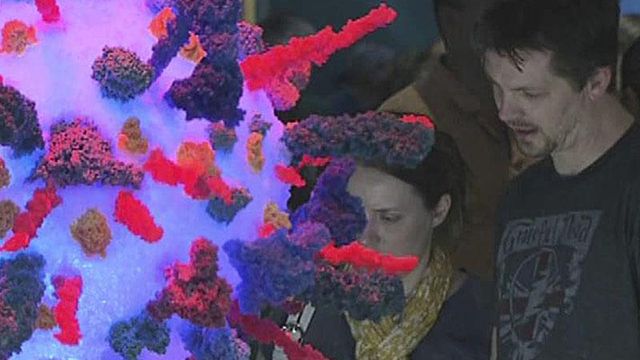Museum of Natural Sciences a free, fun resource in Raleigh
Not only is the North Carolina Museum of Natural Sciences the oldest established museum in the state, it is the largest of its kind in the Southeast. We are very fortunate to have these resources right in our backyard.
Posted — UpdatedMy day started before the doors opened pitching in with a little IT help getting interactive exhibit computers rebooted and functioning for the big day and ended 26 hours later. The rest of the day and night was spent in the Astronomy and Astrophysics Research Lab talking with visitors about everything from Mars to Heliophysics to black holes. There were families and couples. There were even several very well dressed young people who stopped by the event after prom.
In the four years since then, 4,153,663 visitors have walked through the doors. In 2012, it was the state’s top attraction with 1.2 million visitors (1,226,540 to be exact according to Jonathan Pishney, head of communications at the museum). Not only is it the oldest established museum in the state, it is the largest of its kind in the Southeast. We are very fortunate to have these resources right in our backyard.
The museum has been recognized through accreditation with the American Alliance of Museums, and it is affiliated with the Smithsonian Institution and NASA Museum Alliance. In 2014, the museum was awarded the National Medal for Museum and Library Service in a White House ceremony from among 35,000 museums. It was also the site of the annual conference of the Association of Science-Technology Centers in 2014.
The museum continues to delight visitors with science events.
Next Thursday, the NRC hosts the monthly meeting of the Raleigh Astronomy Club from 7 p.m. to 9 p.m. Professor Charles R. Evans, of the Department of Physics and Astronomy at the University of North Carolina-Chapel Hill will present a view of the recent results from the LIGO experiment in “Detection of Gravitational Waves and the New Era of Gravitational Wave Astronomy.” Monthly meetings are open to the public.
These events, like the museum itself, are free.
• Credits
Copyright 2024 by Capitol Broadcasting Company. All rights reserved. This material may not be published, broadcast, rewritten or redistributed.





